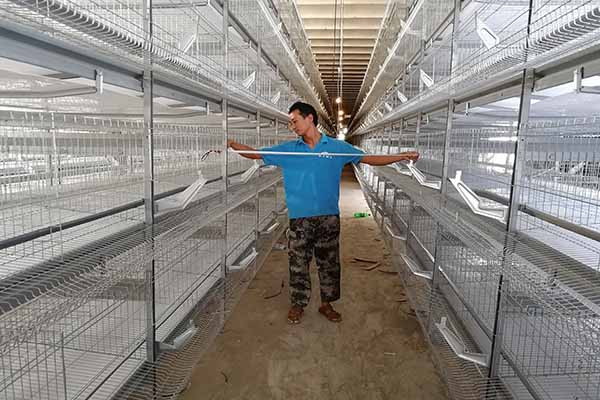How to Start Up a Free-Range Chicken Farm
Time : 2025-04-16
Are you looking to start your very own free-range chicken farm? Great choice! Free-range chickens not only offer healthier and tastier eggs, but they also contribute to a better quality of life for the birds. If you’re ready to embark on this exciting venture, here’s a step-by-step guide to help you get started.
1. Research and Planning
Before you dive in, it’s crucial to do your homework. Start by researching the market and understanding the demand for free-range chicken products in your area.
- Market Research: Find out what types of free-range products people are looking for and how much they’re willing to pay. Check out local farmer’s markets, health food stores, and even restaurants for ideas.
- Legal Requirements: Investigate the legal and regulatory requirements for farming in your area. This includes permits, inspections, and any specific regulations regarding free-range farming.
- Business Plan: Create a detailed business plan outlining your goals, budget, marketing strategy, and timelines. This will help you stay organized and focused as you grow your farm.
2. Choose Your Chickens
Picking the right chicken breed is crucial for a successful free-range operation. Here are some popular choices for free-range farming:

- Broiler Chickens: Ideal for meat production, these chickens grow quickly and have a good temperament for free-range conditions.
- Layer Chickens: These hens are great for egg production and come in a variety of breeds with different egg-color preferences.
- Dessert Chickens: These chickens are bred for egg-laying but are also popular as backyard pets due to their friendly nature.
Consider the climate of your region and the type of products you plan to produce when selecting your breeds.
3. Build Your Coop
Your chickens will need a safe and comfortable home. Here are some tips for building a great coop:
- Size: Ensure your coop is large enough to accommodate your chickens comfortably. A general rule is 3-4 square feet per chicken.
- Ventilation: Good air flow is essential to keep the chickens cool and prevent moisture buildup.
- Bedding: Use clean, absorbent bedding like wood shavings or straw to keep the chickens dry and comfortable.
- Access: Make sure your chickens have easy access to food and water, as well as a way to enter and exit the coop at night.
Remember to build your coop with predators in mind. Secure the coop with a locking door and add a chicken wire fence around the perimeter to protect your birds.
4. Feed and Water Your Chickens</h
Proper nutrition is key to maintaining healthy chickens. Here are some tips for feeding and watering your free-range flock:
- Feed: Free-range chickens do best on a balanced diet of high-quality chicken feed. Supplement their diet with fresh produce, insects, and grasses for a more nutritious option.
- Water: Provide a fresh, clean water source at all times. Chickens require access to water throughout the day, so ensure their waterers are always full and easy to access.
It’s also important to avoid feeding your chickens foods that can harm them, such as avocado, chocolate, and onions.

5. Manage Health and Safety
Maintaining the health of your chickens is crucial for the success of your farm. Here’s how to keep your flock in good shape:
- Regular Check-ups: Regularly inspect your chickens for signs of illness or injury. If you notice any health issues, consult with a veterinarian or a poultry specialist.
- Sanitation: Keep the coop and surrounding area clean to prevent the spread of disease. This includes regular bedding changes and removing any waste or soiled material.
- Predator Control: As mentioned earlier, protect your chickens from predators by securing the coop and surrounding area.
Remember that vaccinations and deworming can also play a significant role in maintaining a healthy flock.

6. Market Your Products
Once you have a thriving flock, it’s time to market your products. Here are some strategies to get your free-range chickens noticed:
- Farmers’ Markets: Participate in local farmers’ markets to connect with customers directly. Offer samples and educate them about the benefits of free-range chicken products.
- Restaurants: Partner with local restaurants that serve chicken dishes. They can help you reach a wider audience and may even offer a loyalty program for customers who buy your products.
- Direct Sales: Consider setting up a direct sales model where customers can purchase your products from you directly. This can be done through a website, email, or even a roadside stand.
7. Stay Informed and Adapt
The free-range chicken farming industry is always evolving. Stay informed about new techniques, regulations, and consumer preferences. Be willing to adapt and make changes as needed to keep your farm successful.
Remember, starting a free-range chicken farm is a journey filled with challenges and rewards. With careful planning, dedication, and a passion for your flock, you’ll be well on your way to a successful and fulfilling venture.
Now, let’s get to work!











